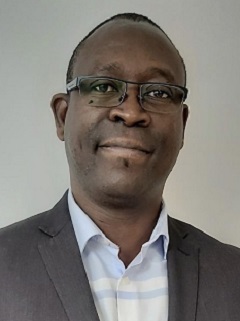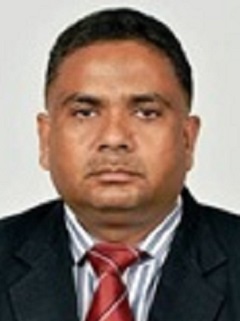Session Details

Date: Wed Dec 9, 2020
Time: 10:45 AM - 12:25 PM
Moderator: N/A
Producers are challenged daily with decisions. With the advancement in technologies the access to decision aid tools is becoming more wide spread. This decussion covers a few of the easily to use and apply technologies available.

Integrating multivariate spatial analysis with the delineation of site-specific management zones (MZ) provides a basis for practical and cost-effective management of water and nitrogen (N) fertilization in precision agricultural (PA). In many crops, measurements of leaf N content are used to assess the plant’s nutritional status and to develop fertilizer application plans for optimal yields. Accordingly, the aim of this study was to develop leaf N content prediction for citrus based on multispectral time-series of UAV images with high spatial resolution, along with a novel statistical multivariate spatial clustering approach to determine MZs for precision nitrogen fertilization. Monthly UAV imagery data from four neighboring sweet orange (Citrus Sinensis) plots was tested against leaf N samplings from 48 tress. The sampling trees (12 per plot) were selected using the stratified random design (SRD) model. A support vector machine (SVM) model was developed to predict N spectral index for canopy N content in each tree in the orchard, with R2=0.7. Using the yield to nutrient-response curves (“envelope curve”) enabled to evaluate the optimal N contents in response to yield, and to provide detailed map representation of all the trees in an orchard, showing trees subjected to “under”, “sufficient”, or “over” N fertilization.
Six variables (namely, normalized difference vegetation index (NDVI), crop water stress index (CWSI), digital surface model, slope, elevation, and aspect) were used to characterize tree-based spatial variability within four neighboring sweet orange (Citrus Sinensis) plots. Six clustering model composites were compared, each including some or all of the following components: (1) spatial representation of the data (e.g., Getis Ord Gi*); (2) variable weights based on their relative contribution; and (3) clustering methods, including different extensions of K-means and hierarchical clustering algorithms. The fuzzy K-means algorithm applied to the weighted spatial representation was found to generate MZs with similar numbers of trees, with minimum fragmentation. Accordingly, management of MZs, or plots, using spatial representation rather than measured values, is suggested as a more suitable platform for agricultural practices. The suggested model composite is flexible, and may be composed of different models for developing optimal MZ delineation for specific plots, or further developed to the tree-level which will improve our understanding of the complex interaction between climate, biological, and management factors and assist in closing the yield gap in orchards.

Matching nutrient supplies with plant nutrient requirements is key to sustaining crop production while preserving the environment. However, fertilizer recommendations are either inexistent or provided as blanket rates in cassava production systems in sub-Saharan Africa. We studied the effects on cassava yield and profitability of site-specific fertilizer rates against farmer’s practices within the framework of the African Cassava Agronomy Initiative (ACAI) project in Nigeria and Tanzania.
A fertilizer recommendation framework combining crop modelling, geospatial analysis and machine learning with data on soil, weather, seasonal and spatial variabilities, fertilizer and cassava root prices and farmer’s budget, an all-in-one decision support tool for agronomy advice delivery was used to estimate site-specific fertilizer rates per planting and harvest dates in about 700 farms in Nigeria and Tanzania in 2018 and 2019. Soil grid data, adjusted locally by farmer’s estimate of current yield, were used to estimate indigenous soil fertility. Daily satellite weather data from NASA and CHIRPS were used. The recommendations of fertilizer rates were made for fertilizer types available on the regional market, and accompanied with advices on split and timing of the applications following 4R nutrient stewardship.
Results revealed that large variation in yield response was associated with variation in locations. Recommended fertilizer nutrient rates ranged from 0-120 kg N, 0-23 kg P and 0-115 kg K ha-1 in Nigeria against 0-129 kg N, 0-30 kg P and 0-46 kg K ha-1 in Tanzania for a maximum fertilizer budget of 200 USD. Application of recommended fertilizer rates generated yield increases in > 75% of cases, and < 2% negative responses compared with the control without fertilizer. Average yield increase was about 7 t ha-1 in Nigeria and 4 t ha-1 in Tanzania, but yield increases reached 20 t ha-1 and 15 t ha-1, respectively. Revenue generated through these site-specific recommendations were also positive for most farmers but variable within the price range of cassava roots on the market.
Applying site-specific fertilizer rates was beneficial for most farmers. However, the recommendations were highly susceptible to market price fluctuations. Developing affordable fertilizer blends for cassava and linking farmers to markets with more consistent prices such as processing factories may sustain positive returns on investments for cassava producers.

Blanket fertilizer nitrogen (N) for large irrigated maize field lead to low N use efficiency (NUE) due to spatial and in season temporal variability. In order to achieve higher NUE, a fertilizer N management strategy using GreenSeekerTMoptical sensor was evaluated. GreenSeekerTM uses visible and near-infrared spectral response from crop canopies. We conducted 03 field experiments during 2012-14 in monsoon season maize to define relationship and develop algorithm between in season sensor measurements of N at V2 (15 days after sowing, DAS), V7 (30 DAS), V12 (45 DAS) and V17(60 DAS) stages and yield of maize. During 2015 to 2019, five field experiments were conducted at 02 locations of Indo-Gangetic Plains to assess the sensor-based N management strategies and to work out prescriptive N management to be followed prior to applying sensor guided fertilizer dose. We observed robust relationship between in-season sensor-based estimates of yield with R2 values 0.79 (n= 80), 0.71 (n= 160), 0.70 (n= 200), and 0.71 (n= 80), 0.72 (n= 160) and 0.74 (n= 200) during 2012, 2013 and 2014, respectively at V7 (30 DAS) and V12 (45 DAS) stage of maize crop and actual maize yield. One of the novelties of the study is its recommendation that suggests application of 50 kg N ha-1 (1/3 dose of blanket state recommendation, SR) at planting or basal N dose as per recommendation of Nutrient Expert® decision support tool (NE) and remaining N as per GreenSeeker-guided dose at V7 and V12 stage was found most appropriate prospective N management strategy in monsoon season maize.
Sensor guided N management resulted in similar grain yield as the SR (150 kg N ha-1) with reduced N application (20 to 34 kg ha-1), greater agronomic (5.5 to 9.9 kg ha-1 N) and recovery efficiency (10.5 to 16.4%) and economics as well. Integrated use of NE for basal N application and remaining in season N application as per GreenSeekerTM further enhanced nutrient use efficiency in maize. Higher plant N uptake and protein yield in maize was also noticed with GreenSeeker assisted N scheduling. At silking, GreenSeeker assisted N use resulted in increase of NO3-N availability in upper soil profile (0-15 and 15-30 cm soil depth) while decrease in soil NO3-N content below 45 cm soil depth. Therefore, the study also suggests that high NUE and restricted NO3-N leaching below effective root zone can be achieved by replacing fixed time fertilizer N top dressing with optical sensor based N management strategy.




